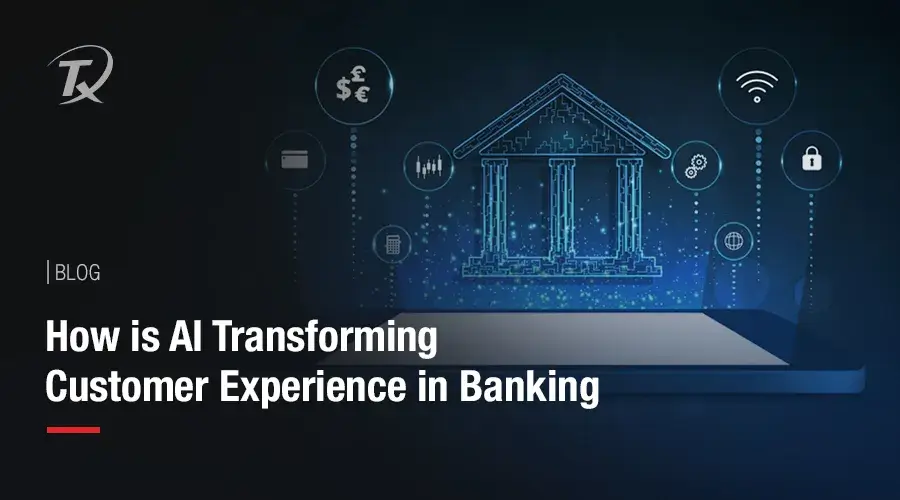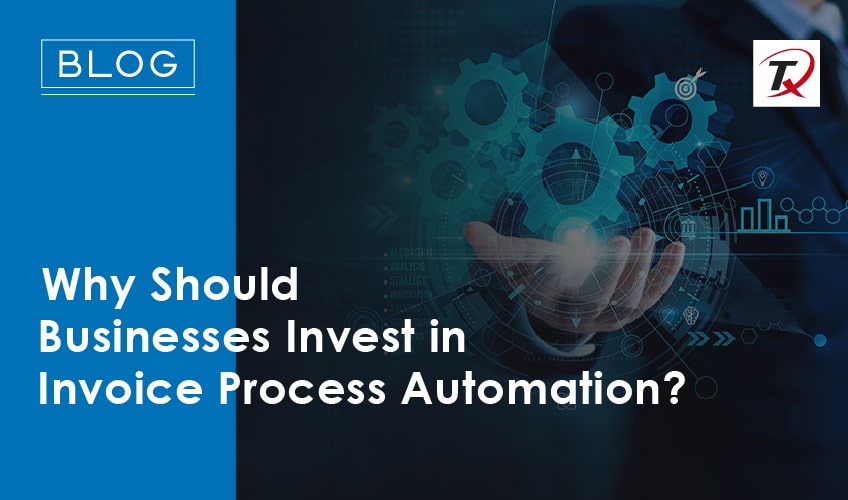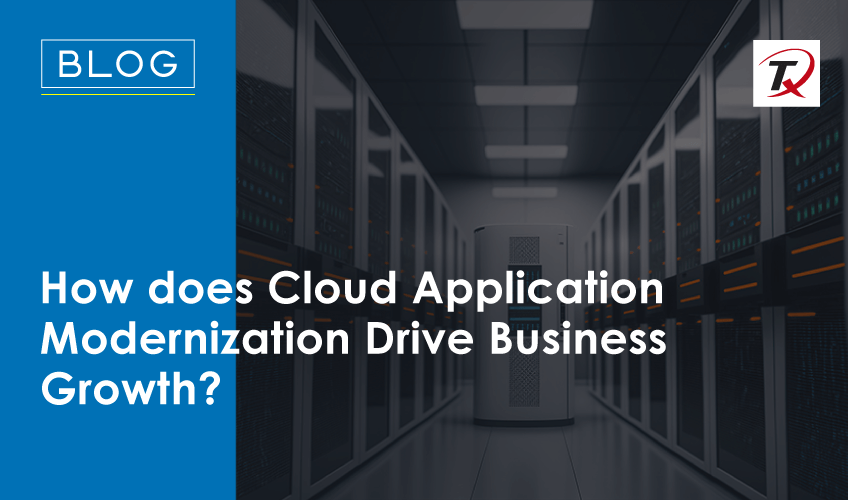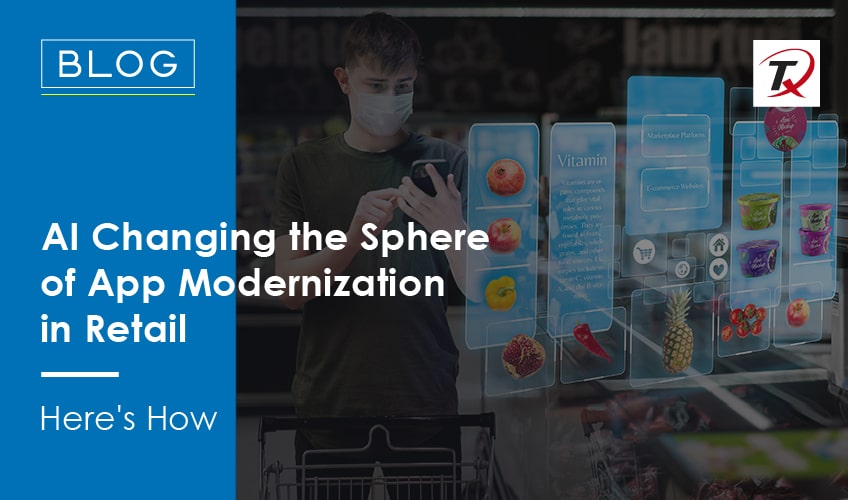
It is correct to say that retailers need to seek new ways to protect their investments and update software portfolios. In the majority of cases, the answer is yes. If that’s the case, retail business owners must find ways to benefit from their modern infrastructure, languages, tools, and other tech aspects. Although retail software development can help transform a store into a modern retail business, yet again, something is missing. And that would be application modernization in the retail sector. One cannot deny that the race to stay relevant and efficient depends on continuous tech innovations.
App modernization is one such innovation that could allow retail businesses to stay upfront and meet their goals. It helps manage resources for running apps, enhances deployment reliability and speed, and improves uptime and resiliency. To further upgrade this innovation, the influence of AI is a must. Its role is critical in app modernization as it provides tools to enhance customer service via AI chatbots, streamline business operations with automated processes, and take decision-making to the next level with diagnostic and perspective analytics.
App Modernization in the AI Age
Humans tend to upgrade and modernize things. This has driven us to build bridges, cities, and roads and invent new technologies to optimize our digital infrastructure. For retailers, it means more efficiency, transparency, productivity, and profitability. But what does app modernization look like in practice? One practice of app modernization could be it allows retailers to update their existing app capabilities to meet changing tech standards, achieve faster time-to-market, upscale business value, invest in new market opportunities, and enhance customer satisfaction. According to a study by IBM Institute for Business Value, 83% of executives believe that app modernization and data are critical to their business strategy.
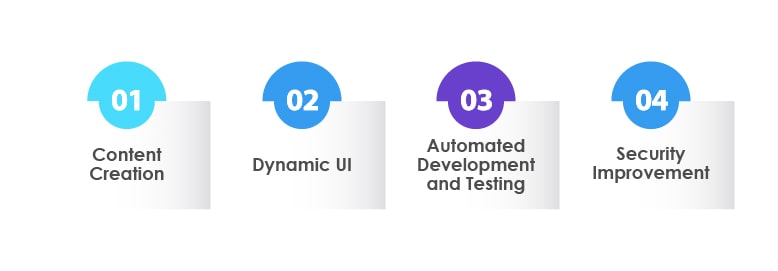
But modernization comes with its own set of challenges. The process is usually slow and doesn’t sync well with business requirements. Other factors include the technical debt collected over the years to attain diverse skills, siloed computing platforms, etc. There are many obstacles in the app modernization process. So now the question is, “How can CIOs and other business leaders address such challenges to make the modernization process successful?” The answer is: “Artificial Intelligence” and its subset “Gen AI.” It draws from deep-learning neural networks, also known as foundational models, which support application modernization efforts, enabling a transformative approach to retail operations and customer interactions. Here’s how it affects app modernization.
Content Creation
Gen AI automatically produces content for product descriptions, marketing copies, and personalized communication. It improves UX by providing tailored content, saving marketing and product development team’s time.
Dynamic UI
AI dynamically alters app interfaces depending on user behavior (interactions, purchase history, etc.) and preferences. This makes the app intuitive and engaging, thus improving retention and satisfaction rates.
Automated Development and Testing
Gen AI facilitates automated test case creation and coding. This speeds up the app development cycle, reduces bug rate, and improves app quality before deployment.
Security Improvement
Gen AI analyzes and learns from data patterns, which helps improve security measures by swiftly and accurately identifying potential threats. It can also design scalable security protocols that evolve whenever a new threat emerges.
Leveraging Gen AI for App Modernization in Retail
CIOs focus on business outcomes, agility, and creating new revenue streams via digital transformation. For them, app modernization is a necessity to achieve their business goals. But there are certain challenges, such as:
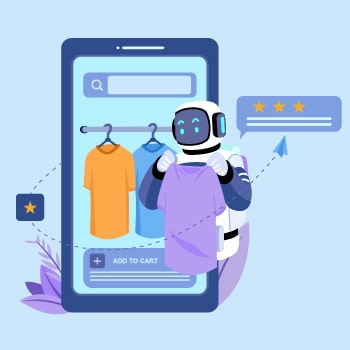
• Complex IT landscape
• Rising technical debt
• Security risks
• High cost
• Limited skillset, and more.
These challenges slow down the modernization process and can prevent retailers from achieving their goals. Fortunately, AI can help overcome these challenges. By adopting the AI-first strategy, retailers can address various outcomes, such as improving developer productivity, speeding up modernization, and optimizing operations. AI holds the potential to unlock a huge economic value and bring unimaginable changes to our work and daily lives. Gen AI further enhances these capabilities. Many retails business owners plan to implement gen AI into their business processes. Industry leaders are highly focusing on AI technologies like deep learning, ML, and gen AI to drive revenue growth.
But the question is, “How can we successfully implement gen AI for business?” The process starts with selecting the right foundational models, which could be:
• Enterprise-grade
• Domain-specific
• General-purpose models
They are trained by injecting different types of business data to perform specific tasks. For instance, with enterprise-grade AI, retail business owners can support these models to implement new possibilities like code generation, resource management, and semantic search. It will enhance automation, improve process efficiency, increase staff skills and knowledge, and help developers to fast-track the development process.
Benefits of App Modernization in Retail Space

App modernization in retail focuses on enhancing business growth and customer engagement. By updating legacy systems with the latest tech, retailers can experience new capabilities and improve service delivery, impacting operational efficiency and customer satisfaction. Let’s take a look at some of the benefits of app modernization in the retail industry in detail.
Precise Staffing Decisions
Retailers can enhance staffing decisions by gaining real-time data and operations insights. Modernized apps will enable retailers to track and analyze customer footfall, inventory levels, transaction data, and sales trends. The data obtained through these factors would help in making informed staffing decisions. They can identify peak hours, areas requiring more staff, and busy hours. Retailers can improvise staffing schedules and upscale customer service by gaining a clear picture of store operations.
Improve CX
It can improve CX by transforming traditional brick-and-mortar stores into digitally driven and customer-centric environments. Modernized Apps would allow retailers to offer personalized recommendations, secure checkout processes, and real-time inventory updates. Customers would get a more convenient and private shopping experience, which could lead to enhanced satisfaction and loyalty levels. Retailers can facilitate immersive experiences to engage customers and meet their expectations by leveraging data analytics, AI, and mobile applications.
Optimize Business Operations
App modernization improves business operations efficiency by streamlining processes based on real-time data, improving communication, implementing data analytics, and enhancing inventory management. Retailers can improve productivity by updating apps with advanced features and tech innovations. Task automation is another factor influencing business operations. Retailers can automate inventory management, customer support, and order processing tasks by implementing modern retail apps. This will eventually save time and minimize error frequency.
Facilitate Omnichannel Retail
It has omnichannel capabilities, transforming how retailers can engage with customers across varying channels. By integrating offline and online retail operations using modernized applications, they can offer a consistent and private buying experience. Users can browse, purchase, and access products via multiple channels, such as websites, physical stores, mobile apps, social media, etc. Merchants can provide services like click-and-collect, where customers place orders online and collect them from the store later. App modernization also facilitates loyalty program integration across channels.
Leverage New Technologies
App modernization integrates advanced technologies like AR/VR, IoT, RPA, and AI/ML in retail. Retailers can utilize these technologies to stay competitive and improve their business efficiency. A report states that over 120,000 stores will start using AR tech in the next one or two years to deliver better shopping experience. By leveraging new technologies, merchants can optimize their store layouts, streamline retail operations, and improve CX.
How can Tx Help with App Modernization in Retail?

In the digital business environment, where agility and tech innovations are necessary, Tx stands out as your ideal app modernization testing partner. Here’s why you should partner with Tx for retail app modernization testing needs.
• E2E QA services to support the app modernization life cycle. We bring a unique blend of global perspective and expertise for executing modernization projects across various geographies.
• We utilize advanced technologies like AI/ML, RPA, etc., to support your app modernization process.
• We provide comprehensive testing across all user scenarios by leveraging over 350 devices in our mobile test lab.
• We utilize our in-house accelerators, such as Tx-Automate, Tx-HyperAutomate, Tx-PEARS, Tx-SmarTest, etc., to conduct functional, performance, and security testing and elevate the reliability and effectiveness of our processes.
• Expertise in validating data integrity during migrations, with advanced automation capabilities and customized strategies.
Summary
App modernization is certainly changing the retail sector. By leveraging new technologies and enhanced UX, retailers can better engage with customers and offer personalized services. By implementing app modernization, retailers can stay ahead in the competitive retail market and better meet customers’ evolving demands. However, for a successful implementation, one must partner with a professional app modernization testing and services provider, like Tx, to easily scale your business infrastructure and become ready for the future.
Discover more
Get in Touch
Stay Updated
Subscribe for more info


